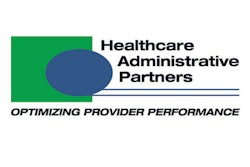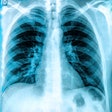
There are circumstances in which payment is expected to be denied by Medicare for radiology services to be provided to a Medicare patient. In such cases, radiology practices must look to patients for payment. However, without following proper procedures, practices will be precluded from collecting from either patients or Medicare.
When patients are expected to become financially responsible for payment, they must be advised in advance, with enough opportunity for them to consider their options. Practices should be using a form known as an advance beneficiary notice of noncoverage (ABN) to notify patients of the circumstances in which they will be responsible for payment, and to obtain their consent to assume responsibility.
Practices may choose to use the form issued by Medicare for this purpose or one created by the practice, provided that it includes certain information prescribed by federal regulations. Medicare revised its standard ABN Form (CMS-R-131) in March 2017, as it does every three years.
ABNs are most often used in radiology practices in the following situations:
-
When Medicare usually covers a procedure but it is being performed more frequently than the Medicare coverage guidelines allow.
Examples include screening mammograms or CT colorectal cancer screenings, which will be denied if they are performed more frequently than the Medicare coverage guidelines allow. If patients wish to receive such services more frequently than the allowed time frame, they must sign an ABN before the procedure is performed to acknowledge that they will be responsible for payment.
-
When Medicare does not cover a procedure ordered by a physician for the patient's particular diagnosis.
Some procedures are subject to local coverage determinations (LCDs) rather than national policy. If the service does not meet the requirements for medical necessity, then the use of an ABN is recommended. Examples of radiology procedures in this category include the following:
- 3D interpretation and reporting of imaging studies
- Barium swallow studies
- MR angiography
- Noninvasive peripheral venous studies
- Nonvascular extremity ultrasound
Note that an ABN is not required for services that are never covered by Medicare (noncovered services). In these cases, practices might want to use the form as a courtesy to notify the patient of his or her financial responsibility. This will avoid any misunderstanding and assist in collecting payment from the patient.
| Billing modifiers are used to notify Medicare of the existence of the ABN | ||
| Modifier | Description | Comment |
| GA | ABN on file for service not medically necessary | The patient was notified that he or she will be responsible for payment. ABN is required by Medicare rules. |
| GX | ABN on file for noncovered service | The patient was notified that he or she will be responsible for payment because the service is never covered by Medicare. Use of the ABN is voluntary. |
| GY | ABN on file for noncovered service | May be used along with -GX to notify Medicare you know the service will be noncovered. This might speed processing of the denial so the patient can submit a claim to another carrier. |
| GZ | ABN not obtained but services are expected to be denied | Patient refused to sign ABN or services were provided in an emergency situation. |
Practices will not legally be able to collect their fees from patients unless they obtained patient consent on ABN forms signed before procedures were performed. Issuing routine ABNs without any reason to believe Medicare will not pay for the service is not allowed. An ABN must be issued only when there is a specific reason to believe Medicare will deny payment for the service, and the form must list the specific procedure and the reason Medicare might not pay for it. More than one procedure can be listed on a single form, when applicable.
Proper use of ABN forms is an important part of maintaining both a practice's revenue stream and patient relationships. When used properly, patients may be billed for service payments denied by Medicare. ABNs also inform patients in advance that they will have to pay for those services, which will aid in the collection of fees.
Practices should be sure to review their forms periodically and update any nonstandard forms to conform to current regulations. The latest version of the ABN form must be in use by June 21, 2017.
Carin Carlson is vice president of business development at Healthcare Administrative Partners (HAP), where she is responsible for all new business activity, including sales, marketing, product development, and strategic planning.
The comments and observations expressed herein are those of the author and do not necessarily reflect the opinions of AuntMinnie.com.


















